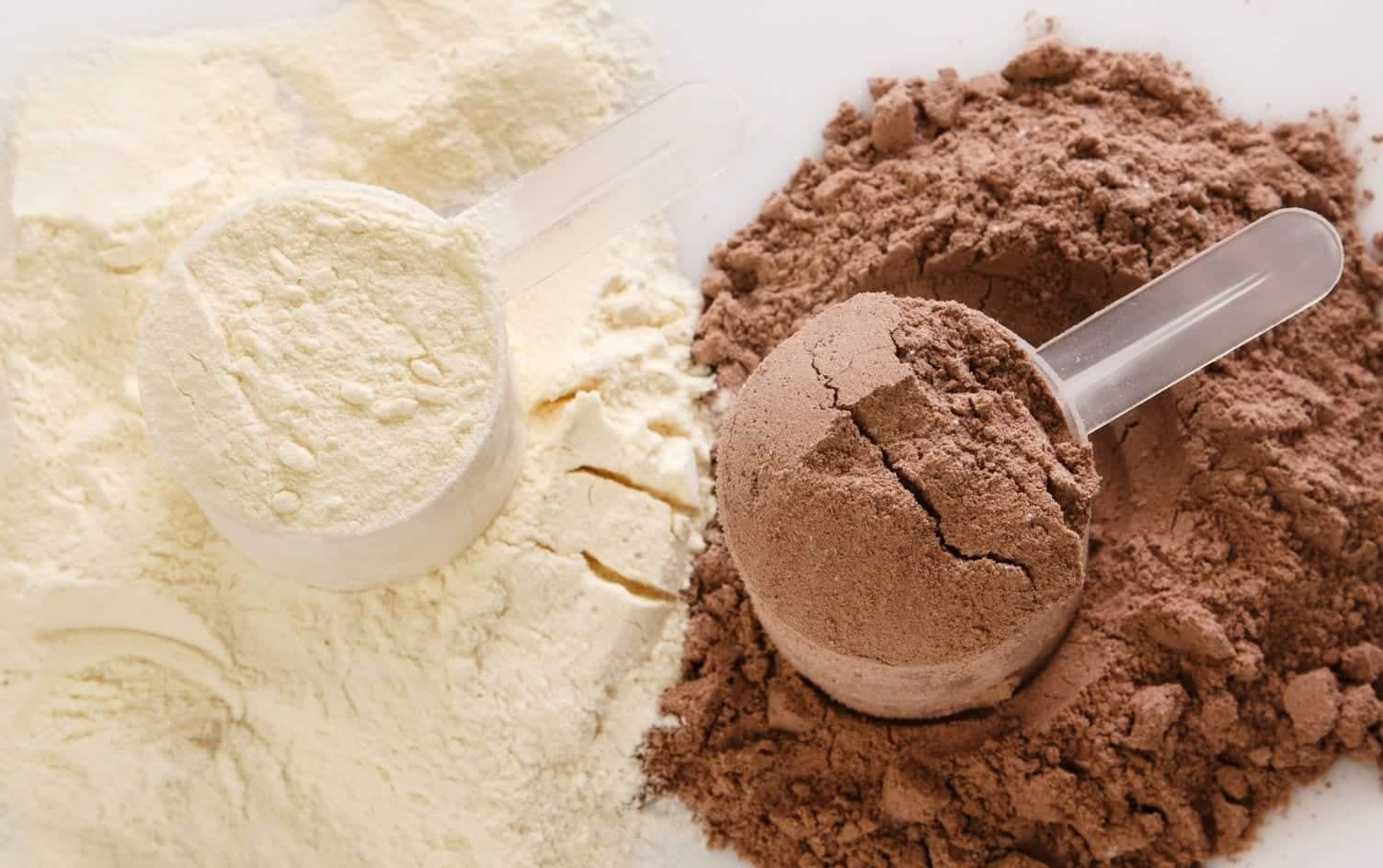Protein is essential for our bodies to work properly. It plays an important role in building and repairing tissues, making enzymes and hormones that regulate metabolism, and supporting the immune system, just to name a few.
When it comes to muscle, dietary protein is key to ensuring your body has the necessary building blocks (amino acids) to maintain and build lean body mass. Without a surplus of available amino acids, muscles will not grow in strength or size. While most people can meet their dietary protein needs with a well-balanced diet that includes plant-based and animal proteins, protein powders are often a cost-effective, convenient way to incorporate more protein into your diet.
One of the most popular is whey protein powder, which generally costs around $10–15/pound and has a long shelf life.
WHAT IS WHEY PROTEIN?
Whey protein is derived from milk, and it is a high-quality protein that supports muscle growth and recovery. In powder form, whey protein is often used for protein shakes and smoothies. Whey protein is an excellent source of the branched-chain amino acids — such as leucine, isoleucine and valine, typically found in dairy and animal proteins — which increase muscle protein synthesis and help reduce muscle breakdown after exercise. This is why whey protein powder is great to include in a post-workout meal.
HOW DOES WHEY ISOLATE COMPARE TO CONCENTRATE?
Whey protein powder is usually sold in two different forms — isolate and concentrate — and choosing which one is right for you can be confusing. To break things down a bit, let’s talk about how they are both made.
Whey protein isolate and whey protein concentrate are different because of varying processing methods used to produce them. To make whey protein powder, whey liquid must be extracted from dairy products like yogurt or cheese and then dried into a powder. Most of whey is protein, but like yogurt and cheese, it also includes some carbohydrates and fat. This is typically how whey protein concentrate is made.
Whey protein isolate is processed differently, so the end product contains more protein and fewer carbohydrates and fat. Typically, whey protein isolate contains around 30% more protein compared to concentrate and significantly fewer carbohydrates and fat (around 1g carb and 0g fat per serving).
It’s important to keep in mind that, in both options, the quality of protein is the same. You’ll just get more protein per serving in the isolate form.
WHAT TO LOOK FOR WHEN CHOOSING A PROTEIN POWDER
1. ADDED SUGAR
Look for protein powders that contain minimal to no added sugar.
2. OTHER ADDITIVES
If you’re prone to digestive issues, watch out for sugar alcohols, aka sweeteners your body can’t digest, which can upset your stomach. In particular, sorbitol and maltitol tend to be the most irritating, per a recent review.
3. ALLERGIES/BANNED SUBSTANCES
If you have a known food allergy, check the ingredient list for known allergens and whether the product was produced in a facility with known allergens.
A wide variety of certifications and third-party testing services exist for supplements. For example, look for product labels indicating a supplement has received NSF Certification, been cleared by Informed Sport or otherwise tested for banned substances.
4. TASTE
Vanilla: Great for adding to smoothies, oatmeal and baked goods, vanilla protein powder is widely available and is a more neutral flavor that won’t overwhelm your food.
Chocolate: Ideal for chocolate lovers, it makes a richly flavored addition to baked goods and smoothies.
Other flavors: Many other flavors exist, such as pumpkin spice, chai, strawberry banana and mocha.
THE BOTTOM LINE
While prioritizing whole-food protein sources is best, protein powders can be part of a well-balanced diet. Whey protein is an excellent choice since it contains high levels of branched-chain amino acids. However, if you are vegan or are allergic to dairy, a plant-based protein powder can be a suitable substitute.
Because of its higher protein content and additional processing steps it takes to get there, whey protein isolate is typically more expensive than whey protein concentrate. If you’re mindful of budget, whey protein concentrate may be the best choice. On the other hand, if you’d like more protein and fewer carbs, then whey protein isolate may be better. Ultimately, both are high-quality proteins the body can use quickly and efficiently.
Discover hundreds of healthy recipes — from high protein to low carb — via “Recipe Discovery” in the MyFitnessPal app.




